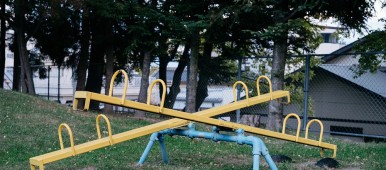
- Mediation
- Arbitration
- Court Neutrals
- Online Dispute Resolution
- Technology
- Court Decisions
- More
- Legislation
- Healthcare
- Guest Posts
- John DeGroote
- John C. Fleming
- Rick Freeman
- Professor Peter Friedman
- Honorable W. Royal Furgeson, Jr.
- James M. Gaitis
- Laura A. Kaster
- Professor John Lande
- Philip J. Loree, Jr.
- Michael McIlwrath
- F. Peter Phillips
- Professor Alan Scott Rau
- Professor Thomas J. Stipanowich
- Professor S.I. Strong
- Richard Webb
- Glen M. Wilkerson
- International arbitration
- Regulation
- Sports and Entertainment
- We’re Back!!!!Well, it’s been a while since we published and that is about to change. Since I spent much of last year becoming
 JAMS Welcomes Karl Bayer to its Panel of NeutralsJAMS, the world’s largest private alternative dispute resolution (ADR) provider, is pleased to announce that Karl Bayer
JAMS Welcomes Karl Bayer to its Panel of NeutralsJAMS, the world’s largest private alternative dispute resolution (ADR) provider, is pleased to announce that Karl Bayer Class Action Waivers in Arbitration Agreements: The Twenty-First Century Arbitration Battleground and Implications for the EU CountriesLinda S. Mullenix, Morris & Rita Atlas Chair in Advocacy at the University of Texas School of Law, has written “Class Ac
Class Action Waivers in Arbitration Agreements: The Twenty-First Century Arbitration Battleground and Implications for the EU CountriesLinda S. Mullenix, Morris & Rita Atlas Chair in Advocacy at the University of Texas School of Law, has written “Class Ac Picking the Proper Technological Tool for Problem-Solving in ArbitrationProfessor Amy J. Schmitz, John Deaver Drinko-Baker & Hostetler Chair in Law and Co-Director of the Translational Data An
Picking the Proper Technological Tool for Problem-Solving in ArbitrationProfessor Amy J. Schmitz, John Deaver Drinko-Baker & Hostetler Chair in Law and Co-Director of the Translational Data An
Recent Posts
ND Texas in Dallas Confirms $141 Million Arbitration Award in Software Dispute
The Northern District of Texas has accepted the findings and recommendations of a magistrate judge and confirmed an arbitration award of more than $141 million in a software licensing dispute.
Continue reading...SCOTX Declines to Consider Whether Man’s Defamation Claim Against Baylor University Should be Arbitrated
The Supreme Court of Texas has declined to consider a man’s claim that his defamation case against Baylor University, the school’s President, regents, and legal counsel should be arbitrated.
Continue reading...Contextual Analysis in Arbitration
Pat K. Chew, Judge Quint A. Salmon and Anne Salmon Chaired Professor at the University of Pittsburgh School of Law, has published “Contextual Analysis in Arbitration,” SMU Law Review, Vol. 70, p. 837, 2017; U. of Pittsburgh Legal Studies Research Paper No. 2018-28.
Continue reading...SBOT Professional Ethics Committee Issues New Opinion Regarding Lawyer-Mediators
The Professional Ethics Committee for the State Bar of Texas recently issued a written opinion regarding whether it is permissible for a Texas attorney-mediator to prepare a post-mediation written agreement memorializing any agreed-upon terms and also offer guidance to the parties regarding the inclusion of additional terms that were not previously discussed during the mediation process.
Continue reading...Arbitration
An interesting article focused on the arbitration of construction disputes was recently published by Dean B. Thomson and Jesse R. Orman, shareholders in the Construction Law Department of Fabyanske, Westra, Hart & Thomson, P.A., in Minneapolis.
Continue reading...Mediation
Via the Court ADR Connection Resolution Systems Institute‘s newsletter we learned that the International Institute for Conflict Prevention and Resolution (“CPR Institute”) recently created a Patent Mediation Task Force. The objective of the Task Force is to investigate ways to improve the use of alternative dispute resolution in patent disputes. The Task Force has already formed three subcommittees: 1) pre-mediation; 2) mediation; and 3) issues unique to patent cases. Professor S.I. Strong (contributor of this blog) is a member of the pre-mediation subcommittee. Download the CPR Institute press release about the Task Force here. Stay tuned. Technorati Tags: law, ADR, arbitration
Continue reading...Healthcare Disputes
AHRQ Awards $23.2m in Grants for Medical Liability Reform and Patient Safety
By Holly Hayes The Agency for Healthcare Research and Quality (AHRQ) announced that seven demonstration grants for the Medical Liability Reform and Patient Safety initiative have been funded for a total amount of $19.7 million. Thirteen planning grants have also been funded for a total amount of $3.5 million. The grants support the implementation and evaluation of evidence-based patient safety and medical liability projects. The seven demonstration grants include models that meet one or more of the medical liability reform and patient safety initiative goals, including: “Reducing preventable harms. Informing injured patients promptly, and making efforts to provide prompt compensation. Promoting early disclosures and settlement, through a court-directed alternative dispute resolution model.” Examples of some of the demonstration grants include: Timothy McDonald, M.D., J.D., University of Illinois at Chicago, IL, $2,998,083 The project is designed to fill the evidence gap regarding the impact on patient safety and litigation rates of programs that feature improved communication with patients, transparency, disclosure of adverse events, early offers of compensation, and learning from mistakes. It will evaluate the impact on Medical Liability Reform and Patient Safety outcomes of extending an existing disclosure program from an academic hospital setting to diverse hospitals in the greater Chicago area. Stanley Davis, M.D., Fairview Health Services, Minneapolis, MN, $2,982,690 The objective of this project is to improve perinatal (the period prior to and just after birth) patient safety and demonstrate the relationship between improved patient safety and a reduction in the number of malpractice claims. The project will implement and evaluate the use of perinatal best practices in 16 hospitals to assess the impact on patient safety and the level of malpractice activity. This initiative builds on the institution’s prior efforts as part of a nationwide collaborative to eliminate preventable perinatal harm. Eric Thomas, M.D., M.P.H., University of Texas Health Science Center, Houston, TX, $1,796,575 The project will review the use of a disclosure and compensation model, which informs injured patients and families promptly and makes efforts to provide prompt compensation. It will identify best practices for using disclosure to improve patient safety, and disseminate best practices to serve patients’ needs and improve safety for subsequent patients. The project will investigate disclosure and compensation in the UT system over a three-year period, identify best practices for using disclosure to improve patient safety, and disseminate best practices with a focus on incorporating patient and family input into efforts to understand why errors occur. Thomas Gallagher, M.D., University of Washington, Seattle, WA, $2,972,209 The project creates a statewide initiative involving communication training for health care workers and a collaboration between hospitals and a malpractice insurer to improve adverse event analysis, disclosure, and compensation. The goal is to enhance the culture of health care communication in order to improve patient safety and decrease medical malpractice liability. Alice Bonner, M.S., APRN, BC, Massachusetts State Department of Public Health, Boston, MA, $2,912,566 The project proposes to engage clinicians, patients, malpractice insurers, and the State public health agency to ensure more timely resolution of medical errors that occur in outpatient practices and improve communication in all aspects of care. The project will identify key areas contributing to ambulatory medical errors and malpractice suits in order to redesign systems and care processes to prevent, minimize, and mitigate such errors in a group of Massachusetts primary care practices. The project will also transform communication culture, processes, and outcomes in these practices so that they are more patient and family-centered, particularly with respect to proactively seeking out, handling, and learning from patients’ safety experiences, concerns, and complaints. The full list of demonstration grants is available here and the planning grants are here. Let us hear your comments regarding these demonstration and planning grants. Holly Hayes is a mediator at Karl Bayer, Dispute Resolution Expert where she focuses on mediation of health care disputes. Holly holds a B.A. from Southern Methodist University and a Masters in Health Administration from Duke University. She can be reached at: holly@karlbayer.com.
Continue reading...Health Reform Law: The Physician Insurers Association of America Reviews Four Alternatives
By Holly Hayes American Medical News posted a review of some of the tort alternatives being considered as part of health reform that were discussed at the Physician Insurers Association of America in May: experts gave insurers a glimpse into four possible alternatives to be tested under the health reform law: health courts, early offers, apology programs and medical review panels. They detailed how the options could alleviate pressures within the current liability system by reducing claims and costs, and by improving efficiency and fairness for physicians and patients. The Patient Safety and Liability Demonstration program discussed here on Disputing, was enacted in March and designates “$50 million in incentive payments to encourage states to test alternatives to damage caps and other more traditional tort reform. The provisions expanded on a separate $25 million patient safety and liability demonstration program approved by the Obama administration in 2009. The deadline for those grants, overseen by the Dept. of Health and Human Services, was in January. Awards have yet to be announced.” Douglas B. Wojcieszak, founder of Sorry Works! Coalition argues, the problem with the current liability system is more than just a legal issue. The problem is a relationship issue where litigation can stem from communication barriers between patients and doctors that can arise after an adverse event. Mr. Wojcieszak says discussing these incidents with “patients and empathizing with them — which does not mean admitting liability — changes the conversation from anger to what’s fair … and you only change the discussion when you inject honesty and accountability. It won’t stop every lawsuit. But we know it stops a lot of lawsuits.” For more on the patient/physician relationship and communication, see our post here. Holly Hayes is a mediator at Karl Bayer, Dispute Resolution Expert where she focuses on mediation of health care disputes. Holly holds a B.A. from Southern Methodist University and a Masters in Health Administration from Duke University. She can be reached at: holly@karlbayer.com.
Continue reading...Legal Research
About Disputing
Disputing is published by Karl Bayer, a dispute resolution expert based in Austin, Texas. Articles published on Disputing aim to provide original insight and commentary around issues related to arbitration, mediation and the alternative dispute resolution industry.
To learn more about Karl and his team, or to schedule a mediation or arbitration with Karl’s live scheduling calendar, visit www.karlbayer.com.













